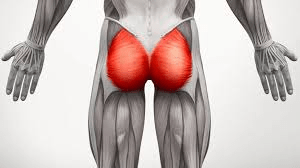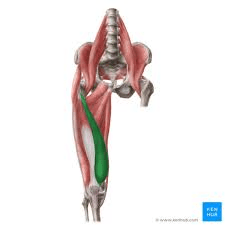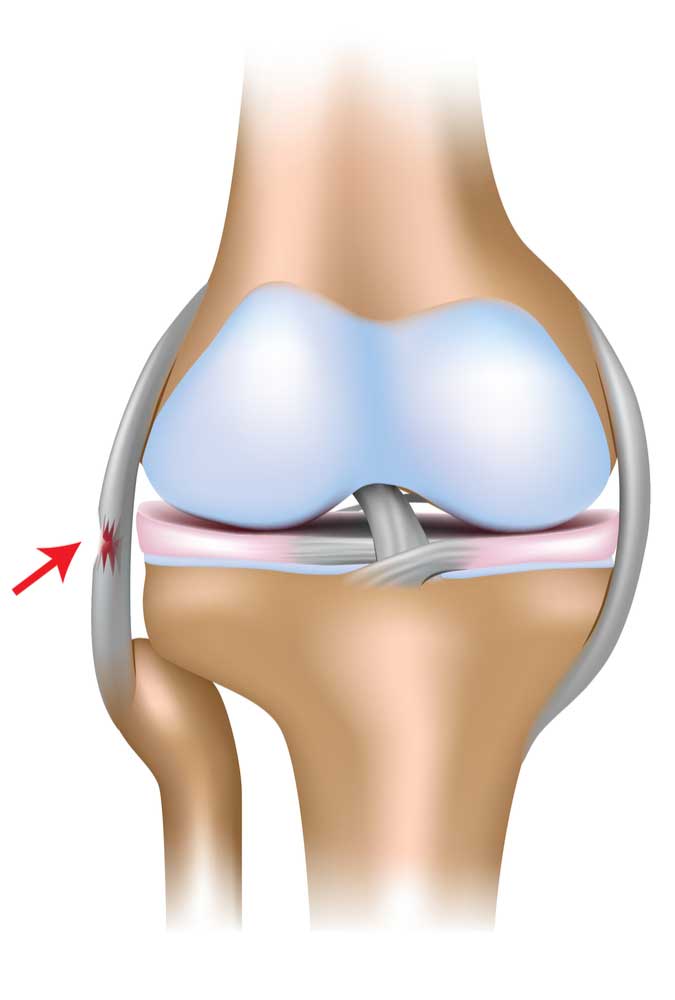How many muscles make up the hamstrings?
3
A contusion of the iliac crest (hip)
How many major ligaments stabilize the knee (tibiofemoral joint)?
4
ACL, PCL, MCL, LCL
Patellofemoral syndrome is also known as
Runner's knee
Lachman's and anterior drawer are special tests used to evaluate the
ACL
The largest bone in the body is the
Femur
EMS will typically use this type of splint with a femur fracture that pulls the femur, reducing pain and spasm.
Traction
The knee is a _________ joint. (Type of joint)
Hinge
A condition in which repetitive activity can cause the patellar tendon to become inflamed or partially pull away from the attachment on the tibial tuberosity.
Osgood-Schlatter (disease)
McMurrays and Apley's Compression are special tests used to help the AT identify _____________ injuries
Meniscus
Identify the following muscle (full name)

Gluteus Maximus
Hip dislocations typically occur ____________ and accompany other injuries
Posteriorly
The primary job of the ___________ is to prevent posterior movement of the tibia on the femur.
PCL/ Posterior Cruciate Ligament
Jumper's knee is also known as
Patellar tendinitis
When treating quad contusions, it is best to have the athlete ice the injured area with the knee in a ___________ position.
Flexed
Known as the "hip socket", and is where the head of the femur fits into the cup shaped portion of the pelvis
Acetabulum
The formation of bone tissue within the muscle is known as
Myositis Ossificans
The patella is a ___________ bone, or a floating bone, due to it being imbedded in a tendon
Sesmoid
You get called out to the field to an athlete with knee pain. You notice their patella sitting more lateral than the uninjured leg. Based on the picture, the athlete has sustained a
(Patellar) Dislocation
If an athlete has problems with their knees, the AT should examine their leg structure to determine if they have genu-varus (bowlegs) or ___________ (Knock-knees)
Genu Valgus
A tough piece of fibrous tissue attached to the acetabulum that helps to secure the femur in place and cushion the joint
Labrum
A disruption of blood flow to the head of the femur causes the tissue at the head of the femur to die. This is known as
Legg-Calve-Perthes (Disease)
Identify the following quad muscle

Vastus medialis
AT's should also be aware of potential damage to the meniscus when treating ______ (ligament) injuries
MCL
Identify the damaged ligament

LCL